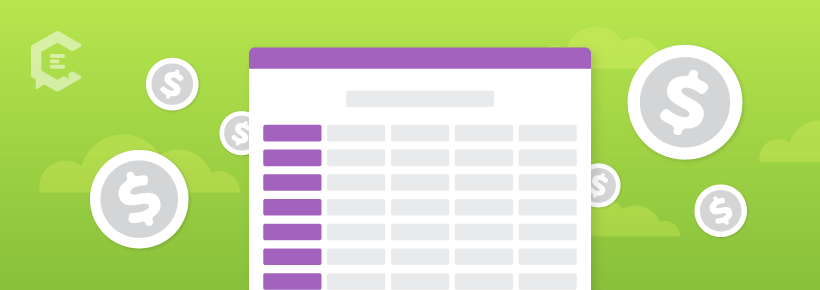From the look of our Instagrams and our plethora of online clips, the lifestyle of a freelance writer seems mighty glamorous. We make our own hours, pitch our ideas far and wide, build companies that provide content for businesses across various industries… and can do all of that in our bathrobe. Or ya know, by a beach in Thailand, paying $1 for a fresh coconut off the branch.
But what few full-time wordsmiths fail to report to their readers and followers is the dark side of freelancing. Or rather: the money matters. In addition to being responsible for our careers, independent workers are also 100 percent responsible for their taxes, which become far more complicated than traditional employment.
Instead of filing a simple W2, suddenly, you’re sent countless 1099s, all of which you must report to the government. And what about expenses? Retirement? Savings? Deductions? It’s enough to make anyone’s head spin — especially those who consider themselves word-people, and not number-people.
To set yourself up for financial success, follow this tax attorney’s best advice for freelancers:
Track everything — and separate it.
If you aren’t in the habit of tracking what invoices are paid, which ones are pending and how much you should be setting aside for taxes, here’s your big, flashing, red reminder to prioritize this habit.
Tax accountant and expert Joshua Zimmelman advises freelancers to develop a system to funnel all income and expenses, and separate them from personal and business. When it comes time to file your taxes in the first quarter of the year, having a credit card where all of your business transactions are recorded is much easier than going line-by-line to decipher what’s living and company-related.
He also encourages freelancers to think holistically about deductions — and be honest about your purpose for everything:
All business expenses can be deducted on your tax return. If you use something for both business and personal purposes — such as a car or cell phone — you can deduct a percentage of the expenses based on the percentage of use. That’s why it is so important to keep meticulous records of business use, such as mileage logs and call logs. If you use a part of your home as an office space, you may be eligible for home office deductions, provided your workspace meets specific eligibility requirements.
Pay your estimated taxes.
One of the trickiest financial mind-bends to wrap your brain around when you become a freelancer is that your income is pre-tax. When you’re full-time employed by a company, they deduct taxes from your paycheck, so you never see the ‘pre-tax’ amount you’re being paid. With freelancing, it’s up to you to do the math, and thus, set aside the appropriate amount you’ll owe during tax season.
To put it simply, Zimmelman explains: everyone has to pay taxes on the income they earn. And for freelancers, it can be less of a shell-shock to pay throughout the seasons:
In order to avoid a big tax bill all at once, some people make estimated tax payments four times a year instead. You can calculate your estimated tax by figuring your expected adjusted gross income, taxable income, deductions, and credits. You divide the year up into four payment periods in April, June, September, and January.
And guess what, if you overpay, you’ll get the cash back, or you can apply it toward taxes for the following year.
Don’t forget about saving for retirement.
It’s a common misconception, according to Zimmelman, that freelancers don’t have the same access to retirement savings the same way employees do. However, writers have many options — but they have to take advantage of them early. Not only is it a smart idea to save for the future, but they often come with tax breaks too.
As Zimmelman explains, you choose between a few options, depending on your set up:
A Simplified Employee Pension Plan is for self-employed individuals and small business owners. A Savings Incentive Match Plan for Employees is a type of retirement plan for small companies with fewer than 100 employees who don’t have another retirement plan. There is also a self-employed 401(k) option for self-employed individuals or businesses with no employees other than yourself and your spouse.
For any of these options, chat with a financial advisor or professional who can help you set these up effectively.
Don’t make too many weird deductions.
Chances are slim your bikini wax counts as a deduction — unless you’re writing a story about it. Or your trip to Whole Foods? Not exactly a business expense. Zimmelman says taxpayers put themselves at a risk of an audit by trying to write off bogus expenses.
“In order for it to be deductible, it must be ordinary and necessary to run your business,” he explains. Some red flags? Deductions that are disproportionately high for your income, large charitable donations and sky-high deductions for travel, meals and entertainment.
“That doesn’t mean you should be afraid to claim unusual write-offs if they’re legit, but make sure you have the records and documentation to back them up if the IRS later investigates,” he adds.
Disclaimer: This article is meant as a guide for informational purposes only. It does not constitute a solicitation or provision of legal or financial advice, nor does it establish a client-attorney relationship. Please consult a professional in making any decisions for your tax preparation or business.





